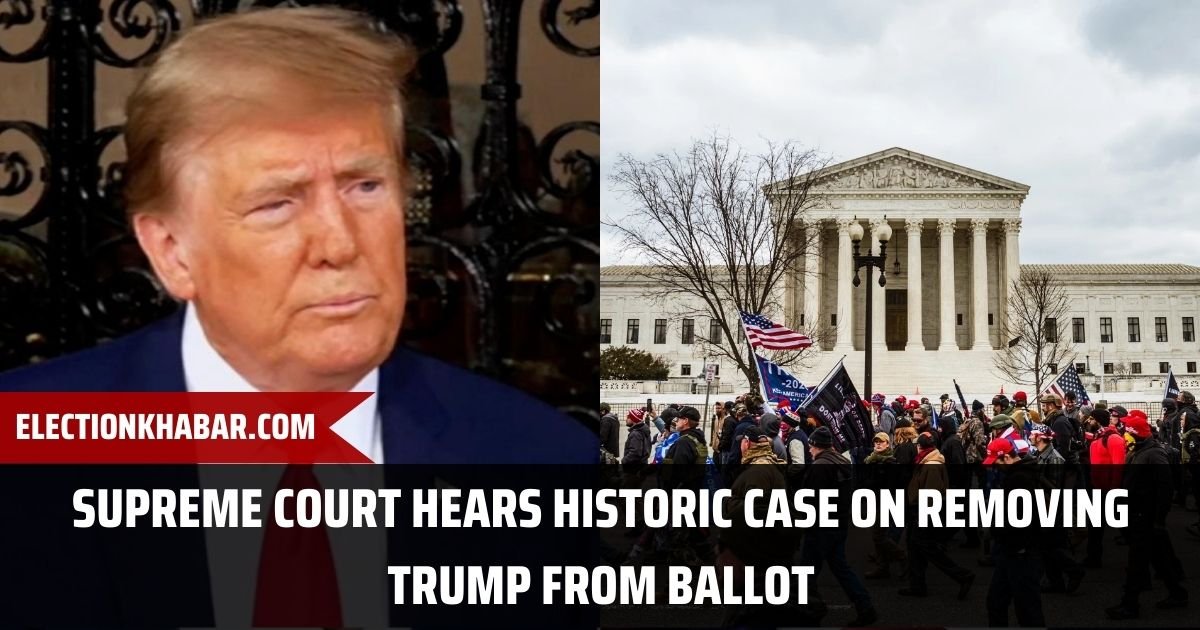The Supreme Court heard historic arguments on Thursday over a lawsuit seeking to disqualify Donald Trump from the 2024 presidential ballot due to his alleged role in the Jan 6 Capitol insurrection. The justices across ideological lines appeared skeptical of utilizing a rarely-invoked post-Civil War amendment to block candidates from office.
The case arises from Colorado where a state court ruled that Trump was ineligible under the “insurrectionist disqualification clause” of the 14th Amendment. But during two hours of oral arguments, the Supreme Court signaled doubts about empowering states to police ballots and seemed to favor leaving such election decisions to voters.
Chief Justice John Roberts questioned if the plaintiff’s position would allow states to arbitrarily remove disfavored candidates in national elections, reducing the presidential race to just a “handful” of states. Justice Elena Kagan called determining whether someone engaged in insurrection “just more complicated and more contested.”
Justices Brett Kavanaugh and Samuel Alito also challenged the proposition that state courts could circumvent voters to disqualify presidential contenders based on subjective interpretations of terms like “insurrectionist.” They suggested it could set a dangerous anti-democratic precedent.
The 14th Amendment provision, meant to bar Confederates from office after the Civil War, has only been enforced eight times since the 1860s. It has never been used against a presidential candidate before.
Also Read1:
- Biden and Trump: How the two classified documents investigations came to different endings
- Trump’s Supreme Court Victory: A 9-0 Decision in the USA
- Supreme Court Justice Clarence Thomas Faces Scrutiny Over Potential Conflict of Interest
The plaintiffs contend Trump’s efforts to overturn his 2020 defeat and incite the Capitol riot should automatically disqualify him under the “insurrectionist clause.” But the court noted the lack of clarity around implementing that provision.
Trump’s lawyers argued the bar on insurrectionists holding office requires Congress to pass legislation spelling out how it is enforced and defined. They said its scope is limited to disqualifying former Confederates, not presidents.
The justices appeared most open to resolving the dispute by relying on an 1869 Supreme Court case known as Griffin v. United States. It held that enabling laws were necessary to enforce the 14th Amendment disqualification.
Ruling that the 150-year-old precedent still controls could allow the court to keep Trump on ballots without definitively answering whether he engaged in insurrection. It would kick the issue to lawmakers to pass clarifying legislation.
The Jan 6 attack received surprisingly little direct attention during arguments. The justices seemed reluctant to wade into making determinations about Trump’s disputed conduct after he lost to Joe Biden.
While the court expressed doubts over employing the 14th Amendment clause to remove candidates, its ruling could still have major consequences. A decision completely barring states from using the insurrectionist provision could hamper efforts to challenge Trump’s eligibility for 2024 ballots.
The Supreme Court is expected to issue its decision before the 2024 primary season begins in early March. While the case centers on Colorado, its impact will likely extend nationwide given Trump’s ubiquitous presence in Republican politics.
